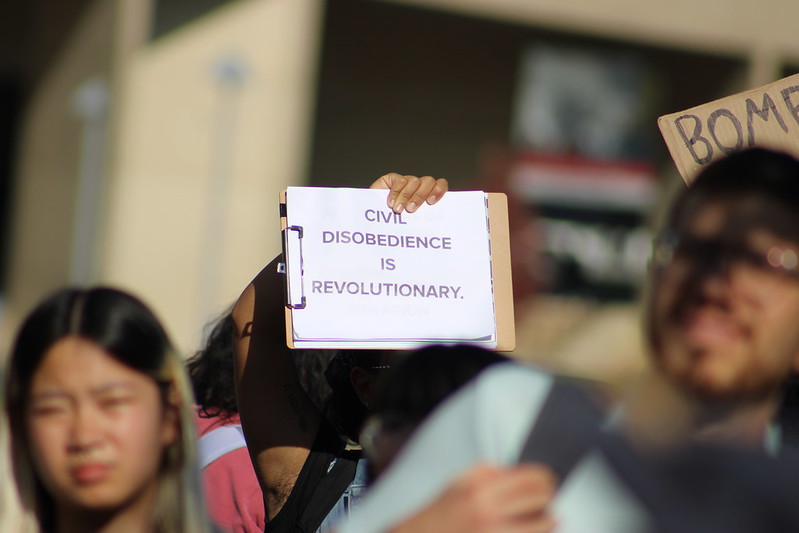The punishment should fit the crime. It’s a phrase that we have all heard before. Unfortunately, the University of Massachusetts does not seem to prescribe to this ideology, as indicated by the consequences facing three students involved in the peaceful sit-in at the Whitmore Administrative Building.
On a campus where social change is supposedly celebrated and encouraged, this punishment is surprising. UMass boasts of its “unwavering commitment to social change and the creation of a better world” and further comments that it has “been at the forefront of some of the biggest shifts in our society.” So why does UMass need to punish its students beyond the legal ramifications they are already facing? This campus prides itself on “diversity, equity and inclusion for all students,” but will not hear those voices when they demand action on a crisis that is unfolding before our eyes. During a time when the voices of the people are so important, UMass punishes its students for using theirs.
Due to the Whitmore sit-in, three students have been denied the ability to travel for a study abroad program they already paid for. According to the Boston Globe, these three students believe that the unnecessarily harsh punishment is the effect of their political views. Many faculty members have also expressed support for the students, saying that they also believe the punishment from the University was one step too far. Rachel Mordecai, English department faculty member and advisor, stated in response to a specific student’s punishment, “This denial of the opportunity to study abroad constitutes a disproportionate penalty for what Aidan participated in.”
One of the two unnamed students facing the same repercussions allowed their attorney to release pertinent information in an article by the Daily Hampshire Gazette. This student was left to pay “around $20,000 in fees related to the study abroad program.” The student is now also left with the struggle to find housing in a competitive market, as well as snag up the last few spots available in spring courses. If these students were unable to enroll in the courses they need to graduate, the University’s decision to punish them might have lasting effects on their academic careers.
Studying abroad is such a unique and life-changing experience. During my time abroad, I learned so much about a culture different from my own and have a deeper appreciation for not only the experience of being in such a beautiful place, but also how lucky I am to have been born into the life that I have. Taking away this opportunity from these three students due to their choice to stand up for their beliefs goes against everything this University claims to be.
Jason Moralee, the UMass associate dean of research and diversity, equity and inclusion, spoke in support of these students as he explained to the Boston Globe that “students are ‘routinely’ cleared to study abroad even if they have code of conduct violations or are on academic probation for drunk and disorderly arrests or academic honesty.” Moralee went on to state his opinion that this protest should not stand in the way of their study-abroad experience.
Furthermore, UMass has only made the feeble excuse that it was just following the policies that are set in place. Not only does this situation make the University look bad by showing how hypocritical it can be, but it also raises the question of where UMass stands in relation to the conflict. Regardless of whether it wishes to remain neutral on the issue, on a campus where so many voices demand to be heard, the University is making a statement by not acting. They are sending a message to the student body by hiding behind their policies.
These students understood the legal ramifications they would face by staying in Whitmore after hours. But by punishing them in a way that could further affect the rest of their academic career, the University has gone too far. Moving forward, UMass is not likely to drop the charges or show remorse for the money these students have lost. Perhaps when faced with a similar situation, they will choose to act differently.
Any students attending a demonstration of any kind should educate themselves on their rights, any relevant policies and regulations, as well as the possible consequences they may face. UMass has posted guidelines for those participating in demonstrations.
Katie Seda can be reached at [email protected] and followed on X at @KatieSeda_.


















